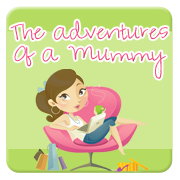I'm not suppose to drink caffeine. I was able to abstain from tea with the first pregnancy (then again ate alot of chocolates - so what's the difference) but this time round.... I need to have my cuppa tea. On the average I can drink 1 cup or 2 in a week. I don't think it causes any effect on the unborn baby, right? Since it's such a small amount. But I just don't get the kick when I don't get myself that 'jiggle in the teabag' drink. I have no worry about sleep, I'm able to sleep.
** Caffeine . A stimulant found in colas, coffee, tea, soft candies, chocolate, cocoa, and over-the-counter and prescription drugs, caffeine has been a controversial topic in pregnancy nutrition for more than a decade. A 1980 study by FDA found that caffeine, when fed to pregnant rats, caused birth defects and delayed skeletal development in their offspring. At that time, although the human implications were unknown, FDA advised pregnant women to eliminate caffeine from their diets.
Since then, more studies have been done to determine the effects of caffeine on the fetus. A study of women in Costa Rica, where coffee consumption is high, showed a significantly lower birth weight for infants and a lower concentration of iron in mothers who were coffee drinkers. This report indicated that maternal coffee intake may also contribute to maternal and infant anaemia . **
** Caffeine . A stimulant found in colas, coffee, tea, soft candies, chocolate, cocoa, and over-the-counter and prescription drugs, caffeine has been a controversial topic in pregnancy nutrition for more than a decade. A 1980 study by FDA found that caffeine, when fed to pregnant rats, caused birth defects and delayed skeletal development in their offspring. At that time, although the human implications were unknown, FDA advised pregnant women to eliminate caffeine from their diets.
Since then, more studies have been done to determine the effects of caffeine on the fetus. A study of women in Costa Rica, where coffee consumption is high, showed a significantly lower birth weight for infants and a lower concentration of iron in mothers who were coffee drinkers. This report indicated that maternal coffee intake may also contribute to maternal and infant anaemia . **




No comments:
Post a Comment